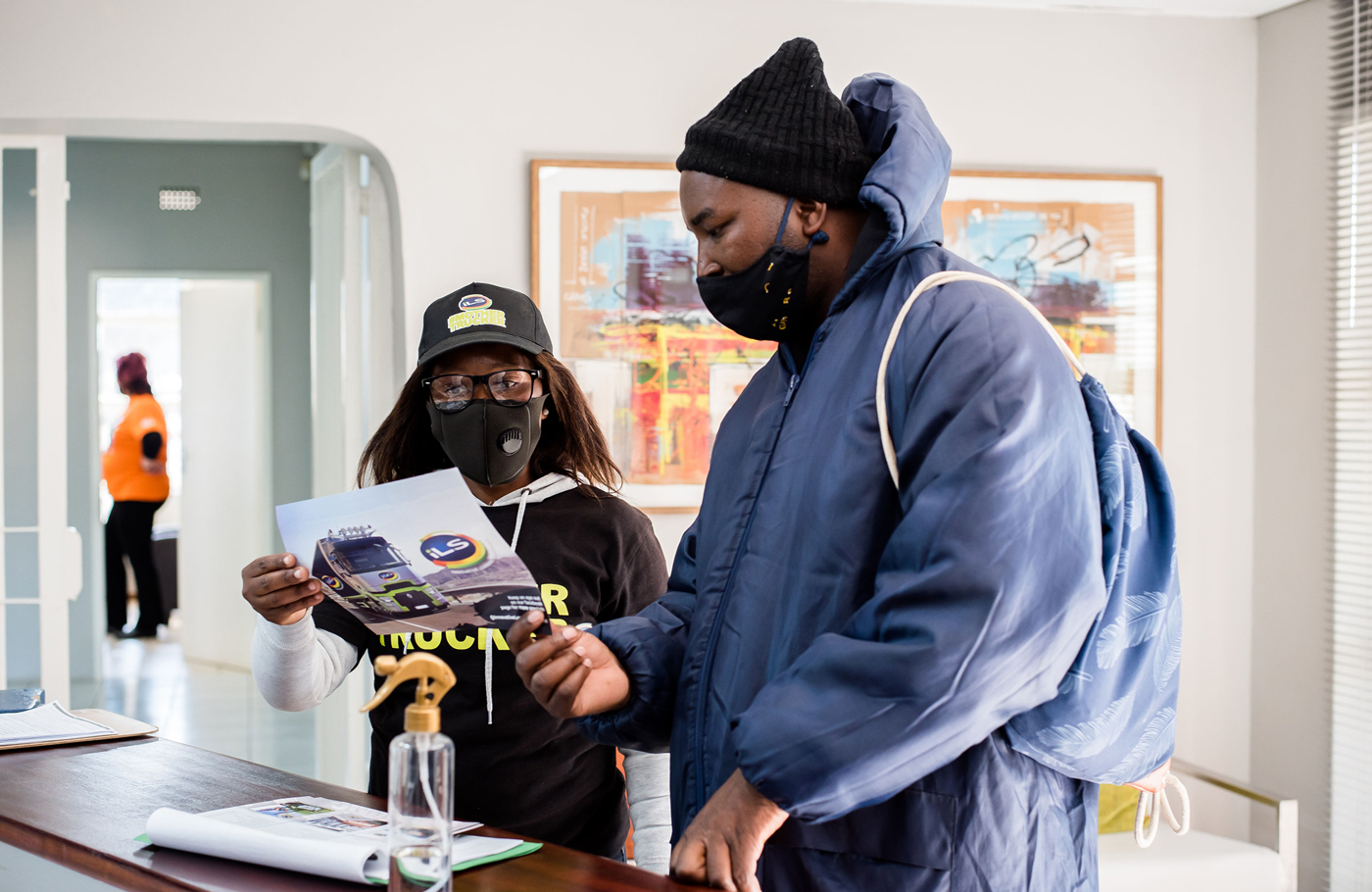ILS empowers more women in a male domain
ILS empowers more women in a male domain
Women are certainly no longer content with being confined solely to jobs traditionally associated with their gender. They are also stepping into roles previously occupied by men. Audrey Thabile (36) is one such woman. She is a driver tester at South Africa’s largest truck driving academy. She is also fully involved with the testing of drivers as the driving academy expands from a focus on Code 8 to Code 14 drivers.
Armed with her Code 14 licence; Professional Driving Permit (PrDP) and Dangerous Goods Permit and having completed driver training at Innovative Learning Solutions (ILS) in 2020, she was subsequently found to be such a remarkable candidate she was hired to join the company’s training team. Thabile is the man… ahem the woman… for the job! Thabile says she is ready to prove her worth by grooming a mostly male audience to tackle the challenges of the road.
“I love trucks. It’s been that way since I was young. When I came across ILS’s Introduction to Advanced Driving Techniques course, I knew I had to sign up for it. The training was exactly what I needed because I had already conducted my Code 14 training and testing with the three-axle truck. The ILS programme uses a Volvo superlink, which requires more skill to handle. Trucking companies want drivers who are competent in the superlink, and a competency certificate proves you know what you are doing,” says Thabile.
Arnoux Maré, founder and CEO of Innovative Solutions Group and ILS, says Thabile is the company’s first female driver training candidate. “We are glad to have had our first female trucker complete her training at ILS. We are expanding our offering to provide more women with the skills they need in logistics – whether as controllers, planners or logistics managers. We look forward to seeing more women equip themselves with the necessary skills to master working in the field – whether manoeuvring a superlink truck or working in FMCG and the logistics industry, traditionally considered a male-dominated industry,” says Maré.

Thabile continues, “Having acquired the certification that deems me competent in alley docking and straight reversing in these heavy-duty trucks, and now as a driver tester, these skills have helped me build a future for my children with a job in the trucking industry.”
She says beyond the social limitations most women face, another reason not many women are drivers rests on old mindsets of driving being a man’s job. “Driving is gender-neutral. It is not reserved for a specific gender. Many studies have proven that women generally are safer drivers than men. Yet there are fewer of us driving professionally.”
Since Thabile’s appointment, another lady – Sindisiwe Evelyn Kunene, who applied for a temporary cleaning role – so impressed the company that she has now been given the opportunity to join a three-month development programme to increase her computer and admin skills in order for her to become a member of the company’s admin and sales team.

The roles for women in logistics vary and they can certainly employ a variety of talents in the industry. For example, ILS also employs an occupational health nurse with the required experience to brief and teach drivers about conditions that typically may affect them including high blood pressure, healthy eating due to the risk of diabetes and other related matters that often result in “unfit” health checks.
“With more women making their mark in logistics and driving, I am confident the industry will reach parity. Our job at ILS is to make sure we minimise any stumbling blocks in the path for women in logistics by providing them with the opportunity to upskill themselves and make them better and safer drivers,” concludes Maré.
Published by
Focus on Transport
focusmagsa




